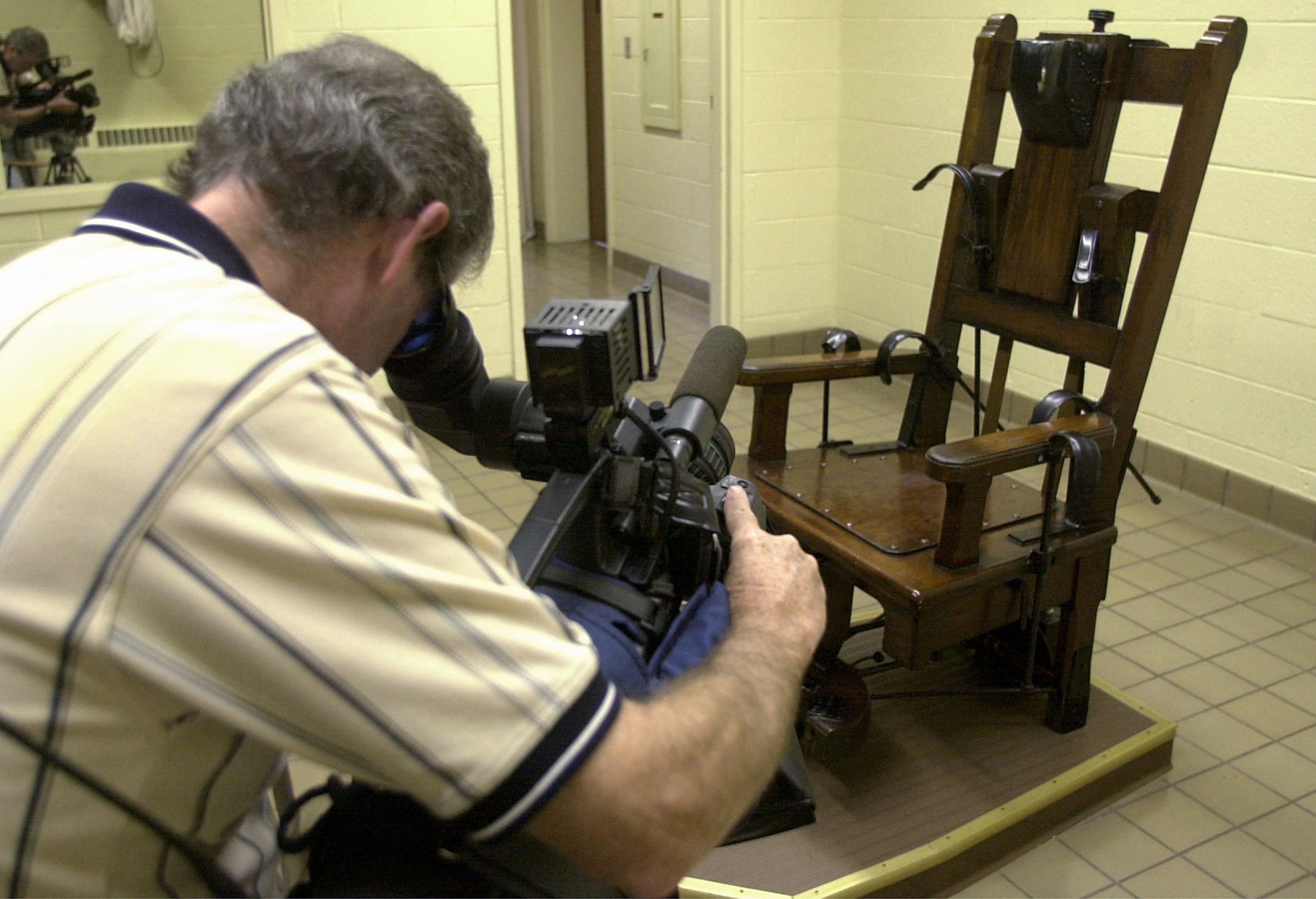Death Penalty Dilemma: America Reckons With Execution After 15-Year Hiatus
The United States, a country built on the principles of justice and equality, has been grappling with the complexities of capital punishment for decades. The latest development in this long-standing debate is the execution of a US inmate by firing squad, a method that has been met with controversy and skepticism. After a 15-year hiatus, the first inmate has been put to death, sparking renewed discussions about the morality and efficacy of the death penalty. This article delves into the history of the death penalty in the US, the circumstances surrounding the latest execution, and the broader implications for the country's approach to capital punishment.
The death penalty, also known as capital punishment, has been a contentious issue in American society since its inception. The US Supreme Court established the death penalty as a constitutionally permissible punishment in 1976, but the practice has been repeatedly challenged on moral, legal, and practical grounds. Proponents of the death penalty argue that it serves as a deterrent to crime, providing a sense of justice and retribution for victims' families. Detractors, on the other hand, contend that it is a form of state-sanctioned murder, often applied unfairly and disproportionately to marginalized communities.
Recent developments in the death penalty landscape have been shaped by a growing body of research on its effectiveness as a crime-fighting tool. Studies have shown that the death penalty does not significantly reduce murder rates, and that it often targets the wrong people, with the majority of those on death row being innocent or wrongly convicted. These findings have led some to argue that the death penalty is a relic of a bygone era, with little place in modern American society.
The Firing Squad Method: A Time-Honored Tradition
The method of execution used in the latest case, firing squad, is one that has been employed in the US for over a century. The practice involves a group of armed guards shooting the condemned person until they are pronounced dead. While some states have opted out of this method in recent years, others, such as Utah and South Dakota, continue to use it. The firing squad method has been criticized for its brutality and lack of mercy, but proponents argue that it provides a humane way to carry out the sentence.
The Rise of the Death Penalty in the US
The death penalty has a long and complex history in the US, dating back to the colonial era. During the 18th and 19th centuries, it was used to punish slaves and Native Americans for various crimes. As the country expanded and more states were admitted to the Union, the death penalty became a standard feature of American justice.
The Modern Death Penalty Debate
In recent years, the death penalty has become increasingly contentious, with many arguing that it is no longer an effective or just punishment. The growing use of capital punishment in the 1970s and 1980s was driven in part by the War on Crime, which sought to reduce crime rates through harsher punishments. However, this strategy has been widely criticized for its lack of efficacy and its disproportionate impact on marginalized communities.
Key Players in the Debate
Several key players have emerged in the debate over the death penalty, each with their own perspectives and motivations. These include:
- Pro-death penalty advocates, who argue that the penalty serves as a deterrent to crime and provides a sense of justice for victims' families.
- Anti-death penalty activists, who contend that the penalty is a form of state-sanctioned murder and is often applied unfairly and disproportionately to marginalized communities.
- Death row exonerees, who have been wrongly convicted and executed, speaking out against the death penalty and advocating for its abolition.
The Latest Execution: A 15-Year Hiatus
The latest execution, carried out in a Utah prison in January 2020, marked a significant moment in the death penalty debate. The inmate, Robert Garner, was put to death by firing squad for the murder of a convenience store clerk in 1988. The execution was carried out in accordance with Utah's laws, which allow for the use of the firing squad method in certain circumstances.
The Controversy Surrounding the Execution
The execution of Robert Garner sparked widespread controversy, with many arguing that it was a case of cold-blooded murder. Garner's defense team had argued that he was not responsible for the crime, citing evidence of his innocence and a possible false confession. The execution was widely condemned by human rights groups and death penalty abolitionists, who argued that it was a gross miscarriage of justice.
The Impact of the Execution on the Death Penalty Debate
The latest execution has likely had a significant impact on the death penalty debate in the US. Many observers argue that the execution has underscored the need for greater scrutiny and oversight of the death penalty, and has highlighted the need for a more nuanced approach to capital punishment.
The Future of the Death Penalty in the US
As the death penalty continues to evolve in the US, it is likely that the debate over its use will remain contentious. While some states continue to use the death penalty, others are exploring alternative forms of punishment, such as life imprisonment without parole. The use of lethal injection, which has been employed in many states, has been widely criticized for its brutality and lack of transparency.
Alternatives to the Death Penalty
In recent years, there has been a growing trend towards alternatives to the death penalty. These include:
- Life imprisonment without parole, which has been employed in many states.
- Life imprisonment with the possibility of parole, which allows inmates to be released after a certain period.
- Restorative justice, which focuses on repairing harm to victims and their families rather than punishing offenders.
The Road to Repeal
The death penalty has been under attack by abolitionists and human rights groups in recent years. Several states have repealed the death
Who Is Lori Onhark Tank
Rick Harrison Net Worth
Elliot Timpf
Article Recommendations
- Candy Mansoneath
- Aishahofey Fans
- Paige Vanzant
- Sondra Blust Fans
- Dan Hayhurst
- Paige Bueckers
- What Happened To Tia Mowryaughter
- Truman Hanks
- Bakhar Nabieva
- Raytevenson Cause Ofeath



/cloudfront-us-east-1.images.arcpublishing.com/gray/TOXF5S7PERF25GYGUWIW7RVYUU.jpg)